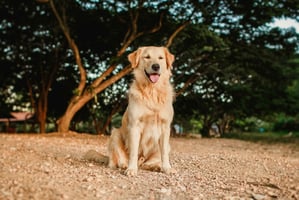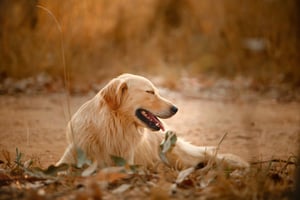Training a puppy to stop biting can be a difficult and time-consuming task. But if you understand...
How to Correct Puppy Biting: A Comprehensive Guide
Puppy biting can be a difficult problem to tackle, but with the right tips and techniques, you can effectively train your pup to stop. This article provides a comprehensive guide to correcting puppy biting, including understanding why puppies bite, how to redirect their energy, and how to reward good behaviour.
Why Do Puppies Bite?
Puppies bite for a variety of reasons. It's important to understand why puppies bite in order to effectively correct the behaviour. Puppies may bite out of fear or anxiety, in an attempt to assert dominance, or simply out of curiosity. They may also bite because they are teething and their gums are sore.
It's important to observe your puppy's body language to gauge why they are biting. If your puppy is biting out of fear or anxiety, for example, you'll need to take a gentler approach to correcting the behaviour.
Redirecting Your Puppy's Energy
Once you have identified why your puppy is biting, you can begin to redirect their energy. Puppies, like all dogs, need outlets for their energy. If your puppy is biting out of boredom, for example, providing them with toys and other outlets for their energy can help to prevent them from biting.
You can also provide your puppy with plenty of exercise, such as walks and playtime, to help burn off their energy and prevent them from biting.
Rewarding Good Behaviour
Rewarding good behaviour is one of the most effective ways to correct puppy biting. When your puppy is behaving well, make sure to reward them with treats, toys, or verbal praise. This will help to reinforce good behaviour and encourage your puppy to continue to behave in a positive way.
It's important to be consistent with rewards and only reward your puppy when they are behaving in the desired way. This will help to reinforce the behaviour and ensure that your puppy learns what is expected of them.
Using Corrective Training
When all else fails, it may be necessary to use corrective training to correct puppy biting. This should only be done as a last resort and should be done in a safe and controlled environment. When using corrective training, it's important to be consistent and to provide your puppy with positive reinforcement when they are behaving in the desired way.
It's also important to remember that corrective training should not be used as a punishment. Instead, it should be used as a way to redirect your puppy's energy and reinforce good behaviour.
Conclusion
Correcting puppy biting can be challenging, but with the right tips and techniques, it is possible to train your puppy to stop biting. Understanding why puppies bite, redirecting their energy, rewarding good behaviour, and using corrective training can all help to effectively correct puppy biting.
By following these tips, you can help to ensure that your puppy learns to stop biting and develops into a well-behaved, happy pup!



